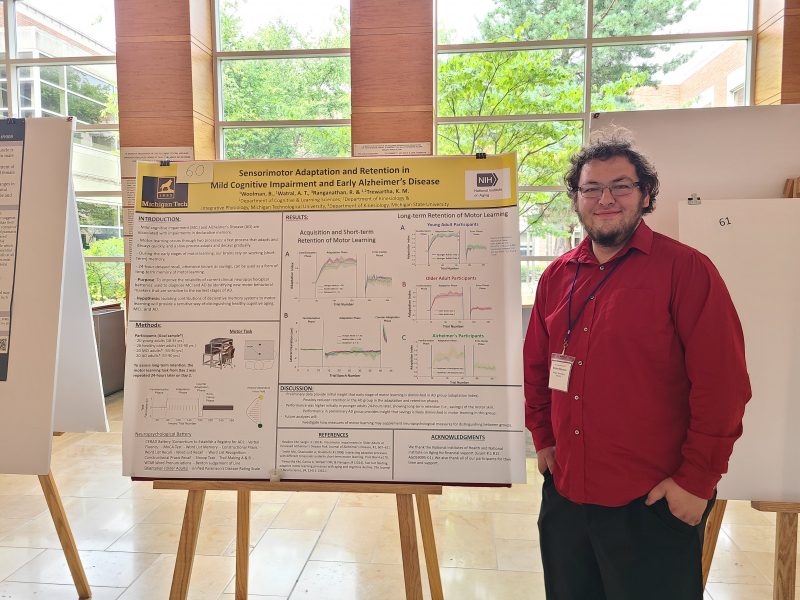Kevin Trewartha (CLS/KIP) and Carolyn Duncan (KIP/CLS/BME) were part of the Inaugural Research Symposium titled “Engineering the Future of Human Health” held on March 13 at Michigan State University. A collaborative event spearheaded by Michigan Technological University Vice President for Global Campus and Continuing Education David Lawrence and planned by a joint MTU and MSU team.
Twelve researchers from MTU and 12 from MSU delivered presentations during the event’s six sessions. The event also featured an 18-poster display from faculty, researchers and M.D. students. Trewartha and Duncan represented the Neurological Disease and Aging Research session.
The purpose of this collaborative event was investigating areas of shared goals, mutual interests and possible research collaboration in crucial areas of human health. Or as Christopher Contag of MSU affirmed, the symposium “will help integrate the research aims of the two universities for a collective endeavor to develop the tools, technologies and knowledge that will impact human health across the state.”
The next step will be developing these research aims and shared human health initiatives in a second collaborative symposium hosted by MTU on October 27, 2023, which is timed to go along with the Upper Peninsula Medical Conference. In this symposium, researchers will elaborate on the theme of engineering the future of human health, but in these key areas: Big Data, Data Analytics, Artificial Intelligence, Image Processing, Epidemiology, Human Factors and Neural Engineering.
For full story see Tech Today: MTU, MSU Collaborate and Build Foundations in Inaugural Research Symposium


